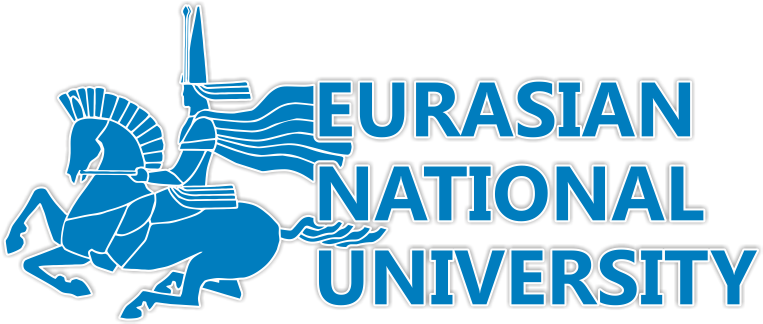6B05305 - Nuclear Physics
1st year students in three languages will talk about why they chose this specialty "Nuclear Physics", what interests them in this area. Also, 2nd and 3rd year students will talk about the prospects and opportunities of the specialty "Nuclear Physics", about the employment of graduates, about the possibility of obtaining a double-diploma education. In the next new academic year, applicants are invited to choose this particular profession.
Currently, young people receive information about their future profession from a school desk, collect comprehensive information about this profession, go with a great desire to enter and believe in the future.
8D05305 - Nuclear Physics
Doctoral students studying in the specialty "Nuclear Physics" introduce them to the direction of their research work in three languages. Tells about what scientific results they achieve. In particular, they briefly describe the research work carried out by the Laboratory of Theoretical Physics, the Laboratory of Neutron Physics, and the Laboratory of Nuclear Reactions of the Joint Institute for Nuclear Research (JINR) in Dubna, Russia. For example, as a result of electron-positron annihilation, the production of hadrons, using nuclear-physical methods such as neutron activation analysis, X-ray fluorescence analysis and PROMT gamma activation analysis, the elemental composition of substances is determined. All studies are carried out at the IBR-2 pulsed fast reactor.
The Joint Institute for Nuclear Research is the most authoritative international scientific center in the field of nuclear research, which has received worldwide recognition. Research work of students is carried out in the laboratories of the Institute of Nuclear Physics, in the Laboratory of Engineering Profile of the Eurasian National University. LN Gumilyov, as well as in the JINR laboratories. The main experiments on irradiation are carried out at the accelerating complexes of the DC-60 cyclotron in the Astana branch of the Institute of Nuclear Physics, IC-100 and U-400 in Dubna.
7M07140 - Nanomaterials and Nanotechnology
The goal of the educational program is to prepare highly qualified masters of engineering and technical specialties that meet modern requirements and have deep knowledge and skills in the field of physical and chemical methods of research, production and design of new materials, low-voltage and high-voltage cells, complete transformer substations, switchgears and other science-intensive electrical engineering equipment. Cooperation agreements have been concluded with various states for undergraduates to undergo scientific internships. In particular, the Russian Federation (Moscow, Dubna, Ufa), Poland (Poznan), Turkey (Ankara), Belarus (Minsk).
Graduates, as specialists in various fields, have clearly defined what they will do in the future, in which area they will go to work, that is, goals have been defined. The video is available in three languages.
8D07140 - Nanomaterials and Nanotechnology
Key areas of research in the specialty Nanomaterials and nanotechnology - materials based on molecular and condensed systems, Carbon nanomaterials: preparation and properties, Study of the formation processes of nanostructured materials obtained using the method of electrochemical synthesis, Study of the processes of radiation modification of nanostructures, Study of the applicability of magnetic nanostructures in biomedicine and hyperthermia.
Partners and Employers: Astana branch of the Institute of Nuclear Physics NNC RK, JSC Kentau Transformer Plant, JSC Elektromontazh, LLP Research Institute Kazakhstan Engineering, Branch of the National Center for Complex Processing of Mineral Resources of the Republic of Kazakhstan Chemical Metallurgical Institute named after Zh. Abisheva ”, Institute of Physics and High Technologies.
Graduates are ready: for research, pedagogical and scientific-organizational work, Marketing, analysis and development of technologies for obtaining and producing functional, composite nanomaterials, carbon, nanobiomaterials and products based on them; to effective work in research and high-tech companies in the field of nanotechnology and life sciences. Graduates have professional skills at the intersection of fields of knowledge: nanophysics, nanochemistry, nanotechnology, materials science and mathematical modeling.
Future career:
- Specialist in the development of nanostructured composite materials;
- Specialist in providing integrated control over the production of nanostructured composite materials;
- Specialist in the field of materials science support of the technological cycle for the production of bulk nanometals, alloys, composites based on them and products from them;
- Research and development specialist;
- Specialist in the field of materials science support of the technological cycle of production of bulk nanoceramics, compounds, composites based on them and products from them;
- Teacher of vocational training, vocational education and additional vocational education.
The video is available in three languages.
Material Science
Radiation penetrates deep into the material, destroys the atomic structure of the substance and changes the properties of solids. The field of nanotechnology is the most profound and directed intervention in this material. This is a completely new and more accurate direction. Materials science is an interdisciplinary field located at the intersection of science and technology. Materials science refers to the design and creation of electronic circuits with the size of a molecule or even an atom. Development of robots such as nanomachines or nanobots. Materials science and technology of new materials selection of materials in all industries and their study by modern technological methods. Scope: solving problems in the field of physics, chemistry, mathematics and computer science. Graduates who choose this profession can work in research, management, design and technological production. He can also conduct scientific research, plan production activities, work in the energy complex and work in educational institutions. The video is available in three languages.
